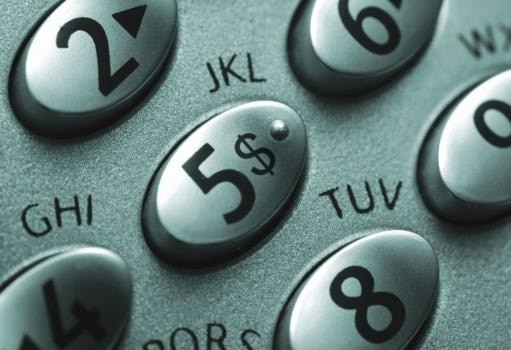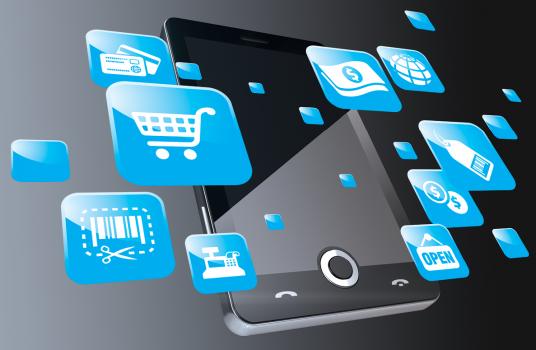The G-20’s Financial Inclusion Killer App

The mobile phone has the power to economically transform the lives of 2 billion of the world’s poorest people. For those without bank accounts, who are excluded from the basic workings of modern financial activity, the ability to move, pay, collect and store money on mobile devices represents a first time opportunity to actually participate in the financial economy. However, successful mobile financial ecosystems require a critical mass of participants in order to reach a tipping point where they can have broad-based inclusive and sustainable impact.
The recent Citi GPS report, Upwardly Mobile: An Analysis of the Global Payments Opportunity, concluded that the Mobile Payments opportunity has two facets – the developed market opportunity which is to provide a secure, feature-rich product for smartphone users, and an emerging market opportunity where financial inclusion is the initial use-case driver.
At this weekend’s Spring IMF-World Bank meetings in Washington, the G-20 should embrace mobile money as the killer app of economic developmental policy. If mobile money is to reach its potential, governments must seize the opportunity with bold leadership, proactive regulation and flow contributions in order to facilitate the functioning of mobile ecosystems. The G-20, through its Global Partnership for Financial Inclusion (GPFI), can make an enormous difference by more fully embracing the power of mobile money and playing a more active role in driving mobile money’s adoption.
Mobile money’s benefits are potentially far reaching. India’s mobile finance 2020 estimates are perhaps the most informative and inspirational, with a potential GDP increase of 5%, tax revenue growth of $50 billion and 4 million new jobs – 1 of every ten new jobs created, according to Boston Consulting Group. That represents a potential 600,000 new businesses before 2020.
As the G-20 analyzes global job creation policy alternatives, mobile finance should be on the list. For example, credit-starved small and medium enterprises (SME) contribute 45% of total developing world employment, and mobile finance can materially improve credit flows to SMEs, thereby moving the employment needle.
Mobile ecosystems will require intensive coordination and collaboration among many participants. The perfect world mobile finance ecosystem would sound like a symphony orchestra, where the various industry and government participants show up at the same time, with the same sheet of music and play in harmony. That is not today’s reality. Currently, players appear at different times and places with their own music and tempo. Here is where governments must step in. Without facilitation and participation by governments in ensuring that the rules are clear as well as consistently applied across market participants and jurisdictions, and by committing to do their part to contribute flows, many mobile ecosystems could stall, or fail completely. Policy coordination must be improved or the private sector will not have the confidence to build and invest, nor be able to do so within an accelerated time horizon.
One of the immediate policy challenges is how best to regulate this new ecosystem. While setting up regulatory frameworks for mobile money can be difficult to get right, many emerging market governments are moving toward a proportionate legal and regulatory framework. Using the principle of proportionality, countries are matching the relative risk (i.e. small transactions, limited balances) to the regulatory and legal requirements. Countries are creating new frameworks to ensure that citizens can enter the mobile money world while still maintaining high levels of control over such issues as anti-money laundering (AML) and counter financing of terrorism (CFT) standards.
Beyond regulation, most governments still underestimate how important they are in the acceleration process of developing world mobile ecosystem success. For example, paying government salaries, social benefits and pensions into the mobile channel could speed adoption and move the ecosystem dramatically forward along the network effect curve. Government fund flows will expand impact and reach, encourage others to participate and most likely result in acceleration of the financial product surge beyond payments. Flows from international official donors and NGOs can also make an enormous difference. Reciprocally, mobile payments provide governments and international donors with greater transparency, insight and influence over the disbursement and usage of payments.
Once an individual receives a payment that puts cash into his mobile wallet, it is critical that the mobile ecosystem enable him to use this money to make payments, or the ecosystem won’t balance and the individual will simply have to “cash-out”. Two of the most important outflows of the socially excluded segment are electricity and water payments, often made to public utilities by the unbanked in the form of cash. Governments should collect these payments via mobile phone.
In addition, having the ability to use a mobile wallet to purchase food and household goods from a local retail store will ultimately be critical in driving adoption by the poor and reducing the amount of “cash-out”. In order for unbanked individuals to be able to pay using a mobile wallet, small retail owners must have a mobile wallet themselves.
Here is where fast moving consumer goods (FMCG) companies come in to play. FMCG truck drivers that accept cash upon delivery should encourage retailers to pay via mobile. This would exponentially increase the number of retail locations that have a mobile wallet and that are able to accept a mobile payment from the unbanked citizen to purchase basic goods, representing a financial inclusion policy coup.
Finally, financial education has become a core part of the G-20’s focus on financial inclusion. Going forward, one of the most important ways that governments can contribute to the functioning of mobile finance ecosystems is to support financial education. Governments and NGOs should combine efforts on a more consistent basis so that education includes not just how mobile wallets works, but also the advantages it brings to the unbanked.
Financial inclusion and the role of government in driving mobile financial adoption in the developing world ought to be a priority for this year’s Mexican G-20 leadership and firmly on the agenda this weekend in Washington. Unlike so many of the areas on the G-20’s plate, mobile finance will not further strain government budgets nor create rifts among members. Ultimately, pushing the G-20 and GPFI deeper into the mobile finance agenda will produce commonality of purpose, further include other developing economies in a collaborative pro-growth process, and drive financial inclusion. This can make it a sure win for Mexico’s G-20 leadership and the world.Authors: Jay Collins,Authors: Jay Collins,Authors: Jay Collins,Authors: Jay Collins,


